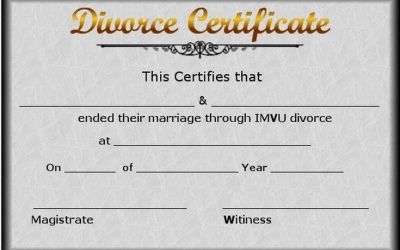Can a Muslim Marry a Non-Muslim? Sharia Law and Interfaith Marriage Insights
Table of Contents ▼
Marriage is an important and beautiful journey, particularly for Muslims, where it carries spiritual significance.
Yet, when love goes beyond religious divides, complications can occur, especially under Sharia law. A common question that comes up is: can a Muslim marry a non-Muslim?
Let’s take a closer look, with clear insights from trustworthy Islamic and government references.
Marriage and Sharia Law
In Islam, marriage is seen as a sacred bond that goes beyond being a legal contract—it is rooted in love, mercy, and faith. Sharia law governs many aspects of Muslim life, including marriage.
Compatibility in faith is one of the foundational requirements for a successful marriage under Sharia law. Islam views religion as a central element in family life, decision-making, and the raising of children.
As outlined by the UAE government portal, for a marriage to be valid under Sharia law, both spouses should share similar religious values.
This leads to a frequent question: can a Muslim marry a non-Muslim? The answer depends on the Muslim’s gender, as Sharia law applies differently to men and women
Can a Muslim Man Marry a Non-Muslim Woman?
Islam permits a Muslim man to marry a non-Muslim woman, but there are specific rules in place. According to Islamic teachings, a Muslim man can marry a woman from the “People of the Book”—which includes practicing Jews and Christians.
This means that a Muslim man can marry a Christian or Jewish woman known for her faithfulness, chastity, and devotion to her religion.
However, this permission comes with important conditions. The woman must sincerely follow her faith, which excludes atheists or women without religious beliefs.
She must also live a modest, chaste life. Furthermore, the marriage should not interfere with the Muslim man’s religious obligations or the Islamic upbringing of their children.
Although many Muslim countries, such as the UAE, legally allow interfaith marriages, there are cultural and social pressures to marry within the faith. Issues such as differences in religious observances, family expectations, and child-rearing can complicate interfaith marriages.
Can a Muslim Woman Marry a Non-Muslim Man?
In Islam, a Muslim woman cannot marry a non-Muslim man, and this rule stands firm, even if the man is from the “People of the Book” (Jews or Christians).
While Islam permits a Muslim man to marry a non-Muslim woman, the situation is different for women, and this prohibition is supported by both the Quran and Islamic scholars.
The reasoning behind this restriction is connected to the traditional family structure, where the husband is expected to be the leader within the household. Islam prioritizes the protection of a Muslim woman’s faith.
There is concern that a non-Muslim husband may not support his wife’s religious practices, and this could impact the religious upbringing of their children. This prohibition aims to ensure that a Muslim woman’s faith remains protected and that her children are raised according to Islamic values.
Interfaith Marriage in Today’s World
In today’s increasingly globalized world, interactions between people of different cultures and religions are happening more frequently, leading to a rise in interfaith relationships. Many countries have had to adapt their laws or interpretations to navigate these new realities. The question remains: Can a Muslim marry a non-Muslim?
Different Muslim-majority countries handle interfaith marriages in varying ways. For example, in the UAE, non-Muslim marriages can occur under civil law, but Muslim marriages must follow Sharia law.
This allows for the recognition of interfaith unions while maintaining the Islamic framework for Muslim marriages. In contrast, Saudi Arabia enforces strict adherence to Islamic marriage laws, applying them to all marriages, including those between Muslims and non-Muslims.
This demonstrates that while society is evolving, the core principles of Sharia law regarding marriage remain consistent.
Conversion as a Solution?
Sometimes, a non-Muslim partner may choose to embrace Islam, and this can remove the obstacles to marriage. However, it’s important to stress that conversion should be sincere.
It should be motivated by a genuine belief in the teachings of Islam, not simply as a way to marry someone. Islam values sincerity above all else, and converting to the faith for any other reason can lead to an inauthentic connection with Islam.
Scholars strongly encourage couples who are considering conversion to take their time in learning about Islam. The decision to convert should be heartfelt, and the process should involve understanding and embracing the principles of the faith.
A true, sincere conversion leads to a deeper connection with Islam and ensures that the faith is integrated into the couple’s lives in a meaningful way.
Ready to Start Your Journey Together?
Sharia law’s guidelines are designed to protect faith, family, and future generations, and their purpose is to simplify life rather than complicate it.
If you or someone you know is considering an interfaith marriage, it’s always advisable to consult knowledgeable scholars to fully understand both the religious and legal aspects.
At Easy Wedding, we specialize in making your Islamic marriage simple, beautiful, and stress-free, regardless of where you are in your faith journey. Whether you’re planning a traditional Nikah or navigating the complexities of an interfaith marriage, our expert team will be there to support you throughout the entire process.
Visit Easy Wedding today and begin your journey toward a happy and fulfilling life together!

